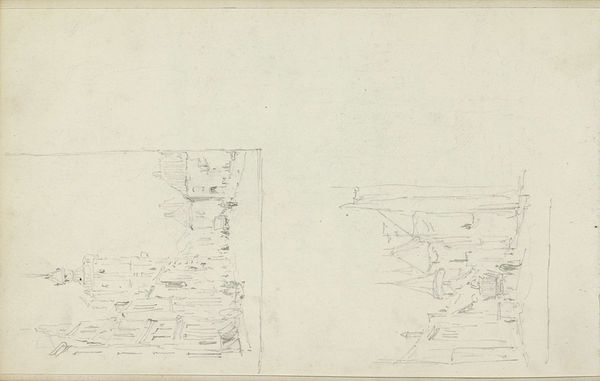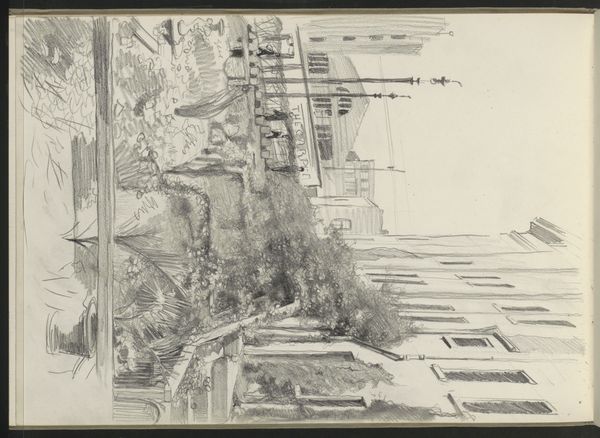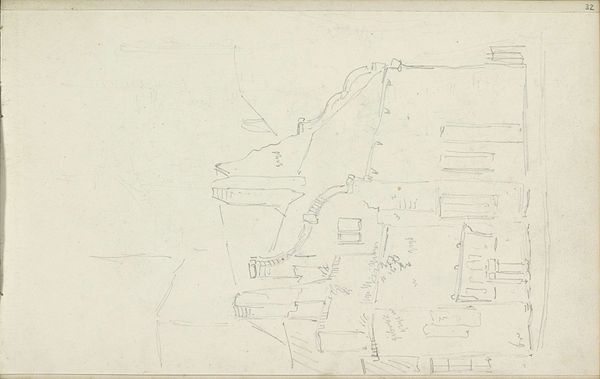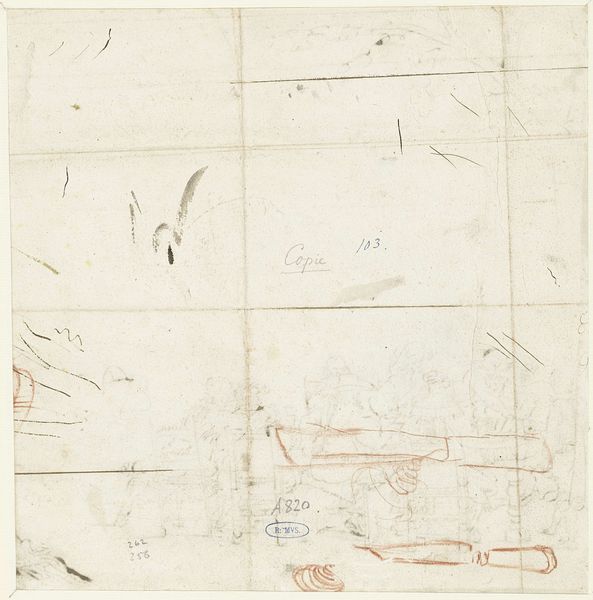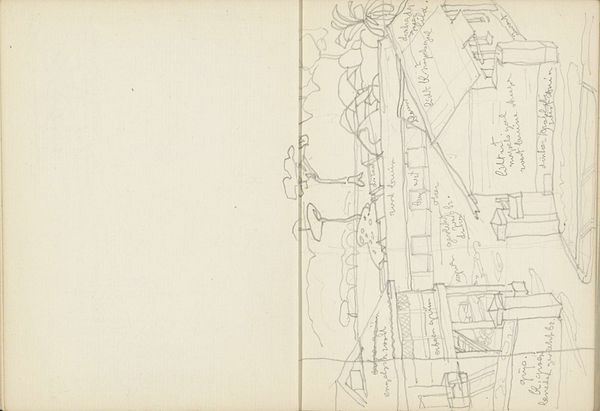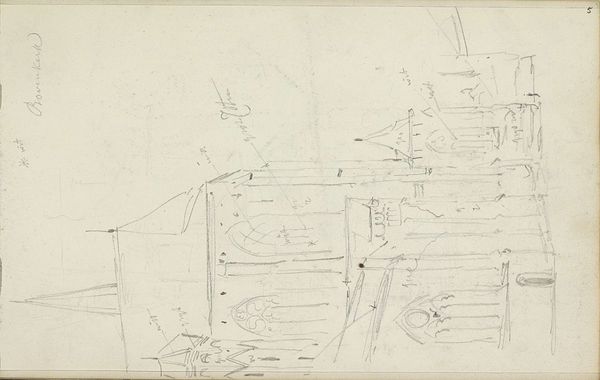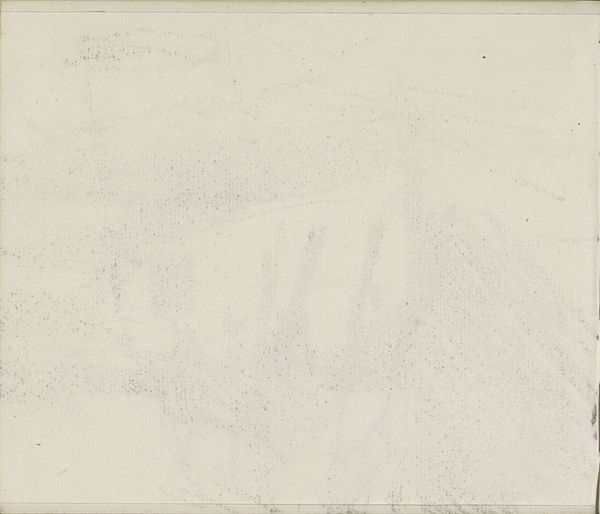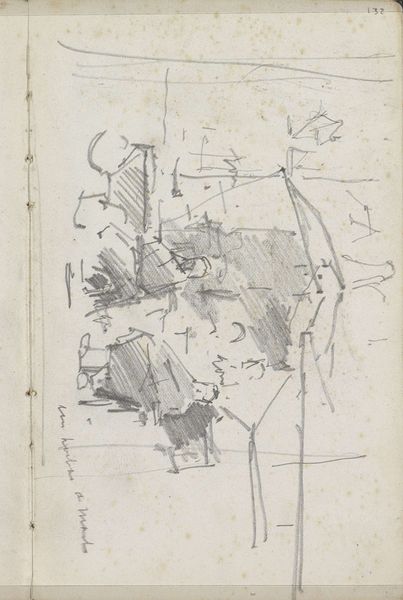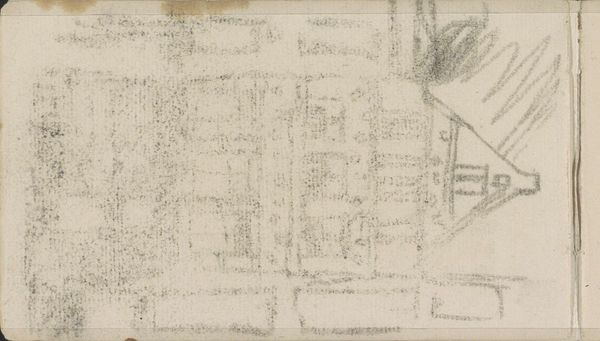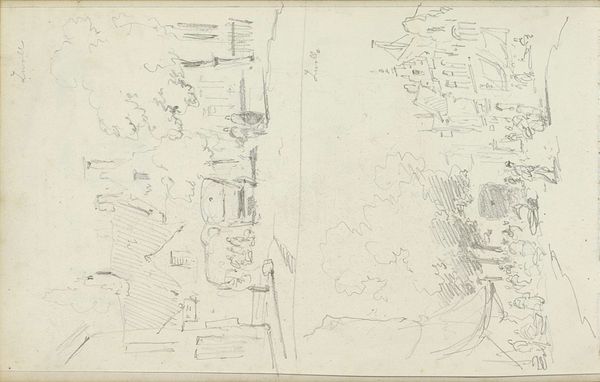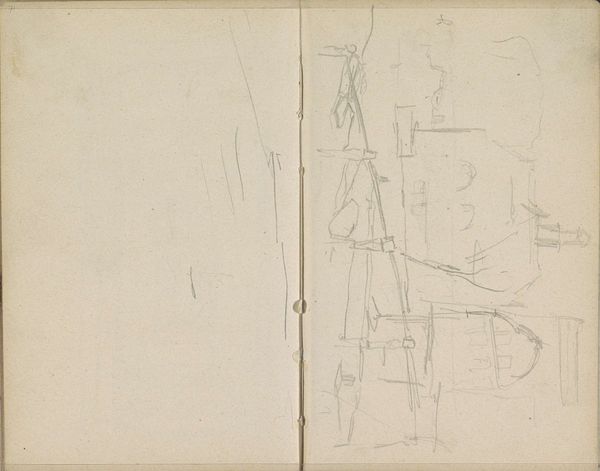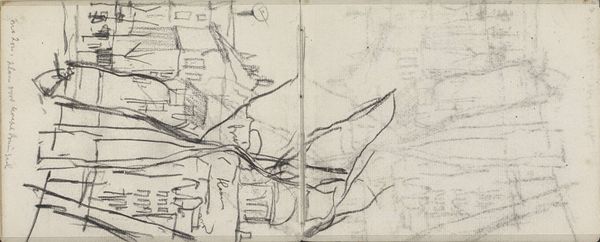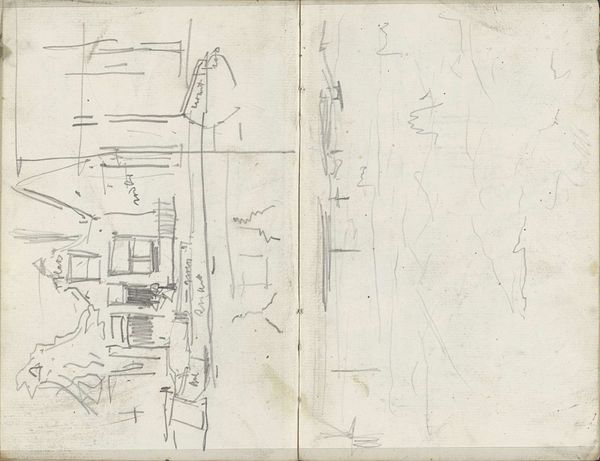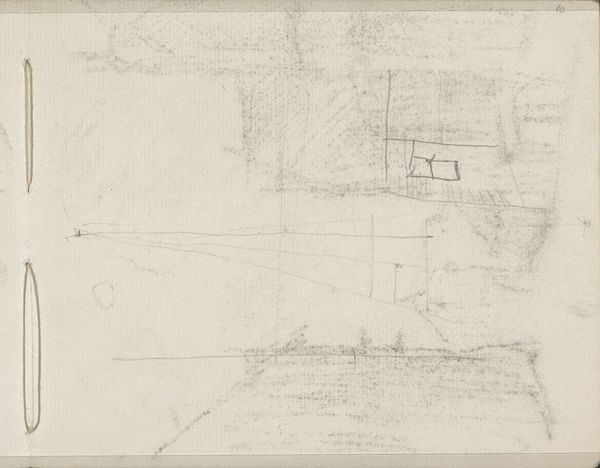
Design for a Stage Set at the Opéra, Paris: Church Interior 1830 - 1890
0:00
0:00
drawing, print, pencil
#
drawing
#
neoclacissism
# print
#
landscape
#
etching
#
perspective
#
pencil
#
genre-painting
#
history-painting
Dimensions: sheet: 10 7/8 x 17 1/16 in. (27.7 x 43.4 cm)
Copyright: Public Domain
Editor: This is Eugène Cicéri's "Design for a Stage Set at the Opéra, Paris: Church Interior," created sometime between 1830 and 1890. It’s a pencil, print, and etching drawing. What strikes me most is the almost mathematical quality, like an architect’s initial rendering. What do you make of it? Curator: Precisely. Let us examine the skeletal structure. Notice how the perspective lines aggressively converge, dictating the visual experience. It seems Cicéri is more concerned with the precise depiction of spatial recession than with atmospheric depth. What is your sense of the texture here? Editor: It feels very flat and linear, lacking depth in terms of shading or tonality. Almost as if the surface is scrubbed to subdue atmospheric effects. Is that deliberate? Curator: Assuredly. This flattening aligns with Neoclassical ideals that dominated the period. Consider how the etching reinforces these flattened planes through its meticulous linework. This precision allows Cicéri to reduce forms to their elemental geometry, to create an ordered pictorial space that echoes the stage itself: carefully structured, tightly controlled, illusionistic. But what illusion does it promote? Editor: A rational, controlled, almost austere space, a departure from, perhaps, more romantic or baroque theatrical designs? Curator: Indeed. Notice how the absence of figures accentuates the absolute dominion of geometry and architectural logic. Is the real subject then, the perfection of the rendering or the illusion of an interior? Editor: I hadn’t considered it that way. It’s less about depicting a church and more about the principles of design themselves. Thank you for expanding my perspective. Curator: It is in the discerning eye where form unveils its dialogue. It is my pleasure.
Comments
No comments
Be the first to comment and join the conversation on the ultimate creative platform.
